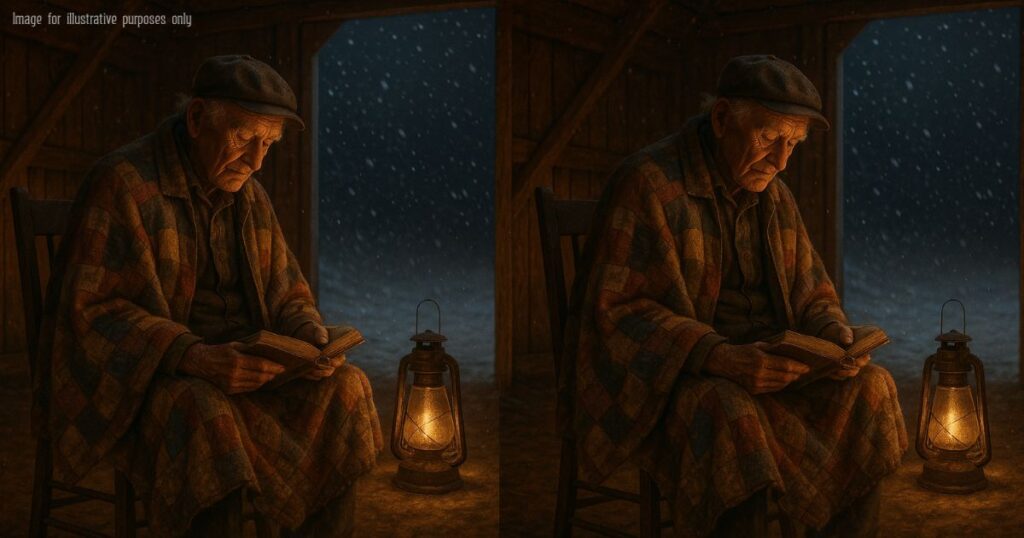It must’ve happened the night he fell. Cold shift, maybe. Or just the years finally winning.
But that beam? It held the whole weight of the loft above.
Had Sheriff Mendez not found him, had that ceiling come down — it would’ve buried Will right there, under the same roof he built for me.
And I think in that moment, something inside him broke again — not the part the stroke stole, but something older. Something sacred.
Because Will Carter didn’t just build barns.
He believed in them.
And now one had betrayed him.
But he didn’t tear it down.
No.
Instead, he rebuilt.
This time, slower. With the kind of reverence men usually save for grave markers. Every nail placed with his own hand — or as close as he could manage. Friends offered help. He said no.
“I need it to be mine,” he told Mendez, in that slanted way he spoke now, each syllable a little crooked, like a fence with one leg in the mud.
He’d stand out there for hours. Measuring. Thinking. Remembering.
Sometimes he’d talk to the air.
Sometimes he talked to me.
One afternoon, he brought out a box I hadn’t seen since ’77.
Inside was the quilt I made the winter after our miscarriage. Blue stars on one side, golden wheat on the other. I stitched every square while he mended the roof, neither of us saying the words we needed to say.
Now, he hung it from the rafters.
Right where the light hits in the evening.
He didn’t call it decoration.
He called it “the heart.”
Folks started stopping by.
At first, just to see. Then to leave things.
A picture of a father long buried. A lock of baby hair. An old Bible. Even a set of dog tags from a soldier who never made it home.
They didn’t ask Will’s permission.
They just knew.
That barn — rebuilt from loss, stroke, silence — had become something bigger than all of them.
A place for grief to breathe.
Will started hosting “open nights” once a month.
He didn’t speak much. Just opened the doors, lit the lamps, put on the old radio with the gospel static. People brought pies. They brought pain. They left both.
Sometimes someone would cry. Sometimes not.
Will would just nod. Thumb-thumb-thumb.
And then, one night, he brought out the notebook.
It was leather, worn soft, tied with baling twine.
He set it on the quilt and left it open to a blank page.
The next morning, a message was there.
“He missed her funeral. But he never missed her love.”
Then another, a week later.
“Thank you for making room for my sorrow.”
And another.
“I never got to say goodbye. But here, I can.”
The notebook filled up, page by page. A thousand heartbreaks that didn’t know where to go until now.
Will read every one.
Didn’t say much.
But some nights, he’d trace the words with that crooked finger and just whisper:
“May.”
“Then he looked up.
And that’s when he saw it — the ceiling beam was cracked clean through.”


